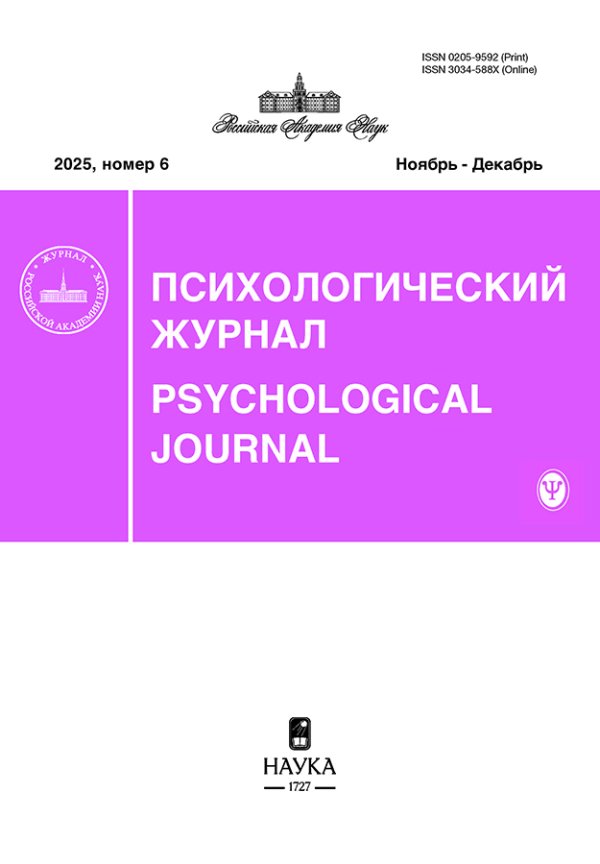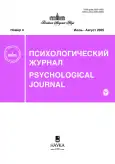Evolution of civilizations
- Authors: Plyusch A.N.1
-
Affiliations:
- Independent Researcher
- Issue: Vol 46, No 4 (2025)
- Pages: 60-69
- Section: INTERDISCIPLINARY RESEARCH
- URL: https://bakhtiniada.ru/0205-9592/article/view/309370
- DOI: https://doi.org/10.31857/S0205959225040062
- ID: 309370
Cite item
Abstract
The paper uses post-non-classical methodology, within the framework of which the studied social objects are considered as systems of different scale of complexity: simple, complex and self-developing. The process of self-development of the system presupposes the author of the project of its development. The formation of this author implies that in his/her culture, as experience is accumulated, preferred types of systems appear, which he/she focuses on when updating the project of the system. These types of systems correlate with the principle “singular–general–universal”, and they can be considered as drifting attractors in the phase space of the self-developing author. Societies considered as self-developing systems represent the social project of generations. Depending on the complexity of the organisation of the collective author of culture (simple, complex, self-developing system), the types of social organisation of the society of increasing complexity are singled out: nations, multinational states, civilisations. Civilisations represent a socio-cultural historical project, the authors of which already have in their culture the experience of integration of complex social systems. The evolution of civilisations does not stop there, they enter into interaction with other civilisations, creating unions of civilisations. Taking into account that the planet is a closed social world, we can also speak of a global civilisation, which also goes through its own stages of development. Individual civilisations can have attractors of the phase space of self-development at any point. The attractor of global civilisation is the pole of the “universal” author, which makes it possible to ensure further self-development of humanity as a whole as a single subject. At the same time, the trajectory of humanity’s evolution is a chaotic attractor, when civilisations in the process of interactions test various forms of their unions in search of the most optimal in the given historical conditions.
Keywords
About the authors
A. N. Plyusch
Independent Researcher
Author for correspondence.
Email: plyushch11@mail.ru
References
- Anderson B. Voobrazhayemye soobshchestva. Razmyshleniya ob istokakh i rasprostranenii natsionalizma. Moscow: Kuchkovo pole, 2001. (In Russian)
- Berdyaev N.A. Sudba Rossii. Moscow: AST, 2010. (In Russian)
- Bondarenko A.F. Yazyk. Kultura. Psikhoterapiya. Kiyev: Kafedra, 2012. (In Russian)
- Giddens E. Ustroyeniye obshchestva: ocherk teorii strukturatsii. Moscow: Akademichesky Proyekt, 2003. (In Russian)
- Danilevsky N.Ya. Rossiya i Yevropa. Moscow: Institut russkoy tsivilizatsii, 2008. (In Russian)
- Zhuravlev A.L., Sergienko E.A. Sovremennye podhody v otechestvennoj psihologii: edinstvo v raznoobrazii. Psikhologicheskii zhurnal. 2024. V. 45. № 4. P. 114–128. (In Russian)
- Zinovyev A.A. Na puti k sverkhobshchestvu. Moscow: Tsentrpoligraf, 2000. (In Russian)
- Ilyin M.V. Vnov o printsipakh evolyutsii. Polis. Politicheskiye issledovaniya. 2020. № 1. P. 104–113. doi: 10.17976/jpps/2020.01.08. (In Russian)
- Kasavina N.A. Problemy tsivilizatsionnogo razvitiya v tekstakh sotrudnikov Instituta filosofii RAN raznykh let (v kontekste podgotovki toma “Memoria”). Problemy tsivilizatsionnogo razvitiya. 2022. V. 4. № 1. P. 11–18. (In Russian)
- Luman N. Obshchestvo kak sotsialnaya sistema. Moscow: Logos, 2004. (In Russian)
- Nekhayev A.V. Teorii natsy i natsionalizmov: problema klassifikatsii. Omsky nauchny vestnik. Seriya “Obshchestvo. Istoriya. Sovremennost”. 2016. № 2. P. 36–47. (In Russian)
- Panarin A.S. Rossiya v tsiklakh mirovoy istorii. Moscow: Izd-vo MGU, 1999. (In Russian)
- Pliushch A.N. Stanovleniye subyekta: ot bessubyektnosti k metasubyektnosti. Voprosy psikhologii. 2020. № 3. P. 14–26. (In Russian)
- Reznik Yu.M. Mediatsionny podkhod k issledovaniyu rossyskoy tsivilizatsii. Chast 2. Dualisticheskaya kontsept-siya A.S. Akhiyezera. Lichnost. Kultura. Obshchestvo. 2021. № 4 (112). P. 81–93. (In Russian)
- Reznik Yu.M. Proyekt ekologicheskoy tsivilizatsii dlya Rossii (sobstvennye osnovaniya i kitaysky opyt). Problemy tsivilizatsionnogo razvitiya 2022. T. 4. № 1. P. 140–159. (In Russian)
- Safranchuk I.A., Lukyanov F.A. Sovremenny mirovoy poryadok: adaptatsiya aktorov k strukturnym realiyam. Polis. Politicheskiye issledovaniya. 2021. № 4. P. 14–25. DOI: 10.17976/ jpps/2021.04.03. (In Russian)
- Smirnov A.V. “Vsechelovecheskoye vs. obshcheche-lovecheskoye”. Moscow: Sadra, Izdatelsky dom YaSK, 2019. (In Russian)
- Spiridonova V.I., Sokolova R.I., Shevchenko V.N. Rossiya kak gosudarstvo-tsivilizatsiya: filosofsko-politichesky analiz. Moscow: IF RAN, 2016. (In Russian)
- Stepin V.S. Tsivilizatsiya i kultura. Saint Petersburg: SPbGUP, 2011. (In Russian)
- Stepin V.S. Filosofiya nauki. Obshchiye problemy. Moscow: Gardariki, 2006. (In Russian)
- Toynbi A.Dzh. Postizheniye istorii. Izbrannoye. Moscow: Ayris-Press, 2010. (In Russian)
- Filippova Ye.I. Natsii, gosudarstva, kultury. Kulturnaya slozhnost sovremennykh natsy. Eds. V.A. Tishkov, Ye.I. Filippova. Moscow: Politicheskaya entsiklopediya, 2016. P. 19–35. (In Russian)
- Khabermas Yu. V poiskakh natsionalnoy identichnosti. Filosofskiye i politicheskiye statyi. Donetsk: Donbass, 1999. (In Russian)
- Khantington S. Stolknoveniye tsivilizatsy. Moscow: AST, 2003. (In Russian)
- Engels F. Proiskhozhdeniye semyi, chastnoy sobstvennosti i gosudarstva. Moscow: AST, 2020. (In Russian)
- Yachin S.E. Sostoyaniye metakultury. Vladivostok: Dalnauka, 2010. (In Russian)
Supplementary files










